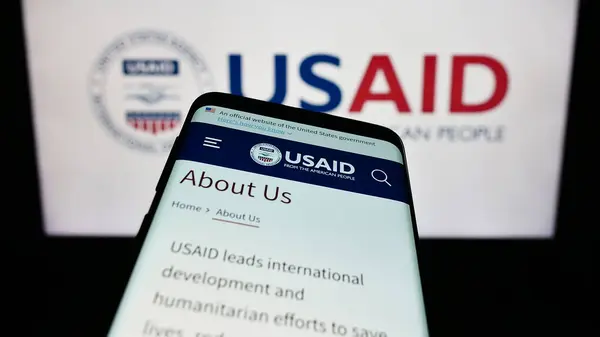Are you an USAID program implementor or Beneficiary unsure how to navigate the recent funding pause?
The recent funding pause for USG foreign assistance programs, which came into effect on January 28, 2025, has sent ripples of uncertainty through the international development sector. As implementing partners and beneficiaries of USAID funding, you’re likely grappling with questions and concerns about the way forward.
This blog post aims to provide clarity and guidance, offering a practical roadmap to navigate this challenging period, drawing from the most recent directives and insights.
Immediate Actions: Your Short-Term Survival Guide
Hit the Pause Button
It’s crucial to understand that this is not a business-as-usual situation. Implementing partners must immediately halt all USAID-funded program activities and avoid any further commitments or spending. Confirm receipt of your stop-work order (SWO) or suspension notice with your Contracting Officer (CO) or Agreement Officer (AO).
Cease Operations
All activities related to your award need to stop, including program implementation, travel, and reporting. Make sure to notify any sub-recipients or sub-contractors to also cease their work.
Cost Control is Key
Take immediate steps to minimise or suspend costs. This is vital for your organisation’s financial health and potential for future cost recovery.
Document Diligently
Meticulous record-keeping is non-negotiable. Document all steps taken to halt or reduce activities and costs. Keep suspension costs separate, using accounting records, payment records, and timesheets. While there is no guarantee that costs will be recovered for grants and cooperative agreements, detailed documentation is critical for any future opportunity to recover costs.
Communicate Clearly
Respond proactively to your AO/CO. Acknowledge receipt of the order/notice and confirm your commitment to complying. Explain the actions you’re taking to halt or reduce activities and costs and include an estimate of costs that cannot be minimised and justify those costs.
Sub-recipient Awareness
If you are a sub-recipient, carefully review your agreements with the prime recipient to determine if there are any specific suspension clauses included.
Waiver Awareness
Familiarise yourself with existing waivers, which currently cover emergency food assistance, some salaries, legitimate expenses incurred before January 24, 2025, and any exceptions approved by the Director of Foreign Assistance. It’s crucial to remember that waivers are not automatic, and your AO/CO will inform you if one applies to your specific program.
Utilise the Letter Template
Use the provided letter template as a starting point to respond to your SWO or suspension notice, adjusting it to your unique circumstances.
Medium-Term: Navigating the Review Process
Brace for a Comprehensive Review
Be aware that a government-wide review of all foreign assistance programs is scheduled to conclude within 85 days of January 24, 2025. The review will align programmes with President Trump’s foreign policy agenda.
Assess Policy Alignment
Evaluate your projects against current US foreign policy guidelines to gauge the chances of your programs being deemed a good fit.
Justify Costs
Be prepared to justify expenses that can’t be stopped, including salaries, leases, and equipment. You might need to show that maintaining some costs during the suspension is actually more cost-effective than immediate termination and the associated costs, like severance.
Labour Cost Management
Now is the time to carefully review employment laws and contracts. Consider alternatives such as moving employees to other activities, using paid or unpaid leave, or implementing furloughs or layoffs if necessary. Seek advice from local labour lawyers to ensure compliance with all current regulations. Make efforts to retain staff while keeping labour costs at a minimum. If you are keeping staff, document your decision and the reasons for it and seek approval from your AO/CO.
Right to Negotiate
Keep in mind that assistance awards are based on mutual agreement. If the government alters the terms, you have the right to negotiate. You may also terminate a grant or cooperative agreement early, while contracts need to be delivered.
Anticipate Three Potential Outcomes:
- Award Termination: If your award is terminated, you will be able to recover termination costs, which could include costs relating to suspension and demobilisation.
- Programme Modification: Your programme might need to be adapted to fit US foreign policy objectives. In this scenario, you may be able to recover suspension costs, and will agree new targets and programme descriptions with your AO/CO.
- Work Resumes Unchanged: It is possible that you can resume your work without needing to change the scope or components of the project.
Long-Term: Planning for the Future
- Contingency Planning: Develop multiple contingency plans, taking into account various scenarios such as termination, program modification, or the resumption of work.
- Financial Prudence: Conduct a detailed analysis of your organisation’s financial situation and seek legal advice before you decide to continue spending during the pause, as cost recovery is not guaranteed.
- Maintain Communication: Stay in contact with your AO/CO to get updates and resolve any uncertainties that arise.
- Flexibility is Key: Be prepared to adjust to changes in program scope, targets, and deadlines.
- Negotiate Costs: Be prepared to negotiate suspension and termination costs, and request equitable adjustments for any schedule and cost changes.
- Document Everything: Make sure you document all decisions, costs, and communications, as this will be critical for future negotiations.
Key Points to Remember
- This funding pause affects organisations receiving funding through both assistance (grants and cooperative agreements) and acquisition (contracts).
- The impact may differ between primary recipients/contractors and sub-recipients/contractors.
- Federal contracts have specific clauses in place for suspensions and terminations.
- USAID uses specific regulations to implement suspensions for U.S. recipients (2 CFR 700.14) and non-U.S. recipients (Mandatory Standard Provision M.10 for cost-type awards). Fixed-amount awards (FAAs) to non-US recipients are not covered by these regulations.
Staying Informed and Connected
The situation is constantly evolving. Stay informed by regularly consulting trusted sources
By taking a proactive approach, carefully navigating the immediate challenges, preparing thoroughly for the medium-term review, and planning for long-term adaptability, you can effectively navigate this period of uncertainty and ensure your organisation is well-positioned to adapt and thrive once the funding pause is lifted.
📢 Share this guide
Find this guide helpful? Share with colleagues, partners, and stakeholders to help them stay informed and prepared!




